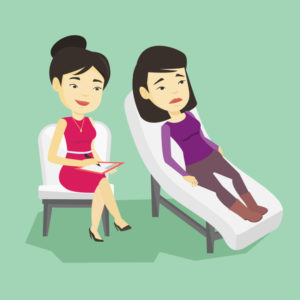What is a first therapy session like?
- Raffi Bilek

- Jul 19, 2018
- 3 min read
Updated: Dec 21, 2025

Most people have never been to therapy before and are understandably a bit nervous about what the first therapy session going to be like. If you’ve gotten up the courage to make that first appointment, you may now be wondering how you’ll even know if it’s going to work? How long do you have to go for to see if you’re getting something out of it?
Of course, every situation and every individual is different. It’s true that you probably shouldn’t expect major changes in your life within one or two sessions. Nevertheless, there are some important indicators you can look for in your first session that can help you get a sense of whether your therapist is going to be helpful to you. Here are three ways you can know you just had a good first session:
1. You felt comfortable with your therapist
You might feel awkward and apprehensive at the outset, but by the end of your first session you should be feeling significantly less so. That doesn’t mean you’ll be cheerful and thrilled to be there; you’ve still got issues at hand to deal with, potentially pretty serious ones. But a good therapist will be able to build rapport with you and to make you feel decently comfortable talking to them.
You might not end up feeling comfortable if:
Your therapist didn’t give you the impression that s/he cares about you personally
You get the sense that your therapist is judging you
You felt like the therapist was uncomfortable him/herself discussing the issues you brought up
You just didn’t hit it off
Don’t think you have to slog it out with a therapist you don’t feel comfortable with. The relationship between client and therapist is profoundly important to the success of the therapy, and if you don’t like the first one you meet, it is absolutely okay to try someone else. (This is not an endorsement for “therapist shopping” where you switch therapists every couple of sessions or every time one of them says something you don’t want to hear. This just means it’s okay to try a few different people until you find one you like.)
2. You feel like there’s a plan

Nobody can tell the future. And there’s no question that creating change in your life is not a straightforward process of continuous, steady improvement; there will be unexpected twists and turns, setbacks, and other surprises. So you shouldn’t expect to know exactly what is going to happen when. However, you should feel like your therapist knows how to handle what you’re bringing to the table and like they have some kind of plan for helping you with your issue.
They should also be able to convey to you in a general sense what is going to happen in therapy with them. The plan doesn’t have to be highly specific – after meeting you for one session, it would be hard to know you or your situation well enough for a lot of detailed predictions. It just has to be solid enough for you to reasonably have confidence that this treatment will lead to an improvement in your situation.
3. You believe in the therapist’s approach
There are many different therapeutic modalities a therapist can use to treat any given problem. You may have heard of some of these – cognitive-behavioral therapy (CBT), psychoanalysis, EMDR, gestalt therapy – and likely many others you haven’t heard of. While there are phony therapies out there, most of the mainstream treatment approaches have actually been shown to work equally well – so long as the client believes in that modality. So if attachment theory speaks to you, then that’s a great a
pproach for you to go with; if you aren’t a big believer in the subconscious, psychodynamic modalities probably aren’t for you (even though they can certainly be effective).
Ask your therapist how they plan to solve the problem – the name of the specific therapeutic approach is not as important as what they are going to do with you and what the basic philosophy of their work is. If you agree with that philosophy, there’s every reason to believe they can effectively help you with it. If you think it sounds too technical or too woo-woo for you to buy into it, then it doesn’t really matter if it’s a good theory – it’s probably not for you.
There is no guarantee that any one therapist can help you out of your situation. Finding a good therapist and avoiding the bad ones is part research and part trial and error. So give it a shot, try a first session, and see how you feel. Some agencies, like ours, provide free consultations for exactly this purpose. And if you don’t like the first therapist you meet, don’t give up – keep at it until you find someone you feel comfortable with and believe in.




Comments